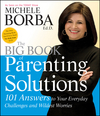REALITY CHECK: In a national survey only 25 percent of teachers described their experience working with parents as “very satisfying.” Thirty-one percent cite parents and communicating with their as their biggest challenge. So approach that teacher as a partner in helping your child become the best he or she can be.
You just received a memo from your child’s school that your parent-teacher conference has been scheduled. This will be your first one or your child may not be having as success year as you’d hoped. So what you do ask?
First, keep in mind that your child’s teacher has scheduled only a set amount of time to talk, so you will want to use every second wisely. My advice: take a few minutes before the conference to jot down questions you have and take those with you so you won’t forget to ask. Also ask your child if there is anything the teacher might tell you that you don’t already know. (It’s always best to not be surprised). Your goal at the conference is to form a mutually respectful alliance with that teacher as well as find out how your child is doing and the way ways to support his academic success.
Here are a few areas to consider with questions to ask that will help you build that crucial parent-teacher relationship:
- Teacher insight: What do you consider my child’s strengths and challenges?
- Academics: What are his strongest and weakest subjects? How does he compare to the rest of the students? Is he at the grade level? Could he benefit from a tutor?
- Homework: Is there a homework schedule? How much homework is he to be doing each night? What if the homework is too difficult? Is there a reading lists of books he should be reading at home? What about tests, book reports or upcoming projects?
- Socially: How does he get along with others? Does he know how to socialize respectfully? Who does my child play with? Is there any child you think might be a good friend?
- Behavior: How does my child behave around adults? Is he polite and respectful? If there is a behavior problem what is the teacher’s discipline approach?
- Your role: Ask what you can you do at home to support your child (without micromanaging and rescuing!) Is there anything I can do to help out at school such as go on field trips, grade papers, help with a project?
- Contact: What is the best way and time to reach the teacher (email, phone, note)? Find out how the teacher would like to be contacted and how often.
- Problems: If my child is having any kind of problem how do you let me know? How will you know if things are improving or declining? If things do not improve, would be our “next step?”
If you feel appropriate write a note to the teacher thanking her for her time and advice. Believe me, it is appreciated. Then go home, share what you learned with your child, and then commit to doing what you discussed with the teacher. The former-teacher in me also offers this piece of advice: Remember, teachers are trained professionals who for the most part cherish teaching children.
If you continue to see that your child is continue to struggle academically, behaviorally or socially and you do not see improvement in two or three weeks, call for another conference. If you still don’t get help then it’s time to seek the help of the principal, vice-principal or counselor.
For more solutions to help your child’s learning success refer to these sections in The Big Book of Parenting Solutions: 101 Answers to Your Everyday Challenges and Wildest Worries:
Homework: page 435; Reading: page 453; Teacher Conference: page 458; Test Anxiety: page 460; Attention Deficit: page 466; Tutor: page 441; Learning Disability: page 516; Gifted: page 508; Gives Up: page 426; Procrastinates: page 447; Overscheduled: page 568; Bullied: page 332; Separation Anxiety: page 301
 The Big Book of Parenting Solutions: 101 Answers to Your Everyday Challenges and Wildest Worries
The Big Book of Parenting Solutions: 101 Answers to Your Everyday Challenges and Wildest Worries
[i] National survey 25% of new teachers describe experience of working with parents as “very satisfying,” N. Gibbs, “Parents Behaving Badly,” Time, 40-49.

